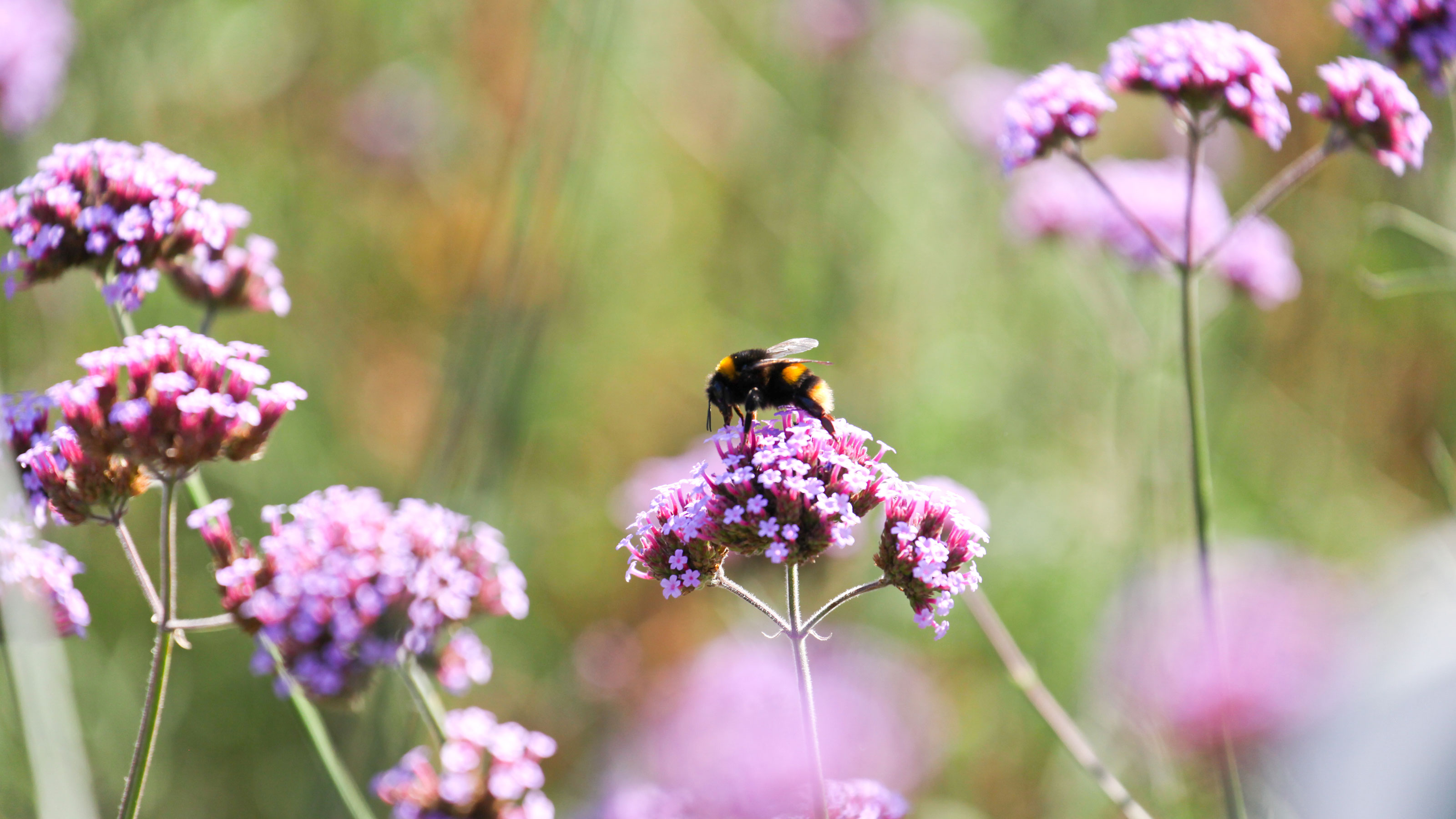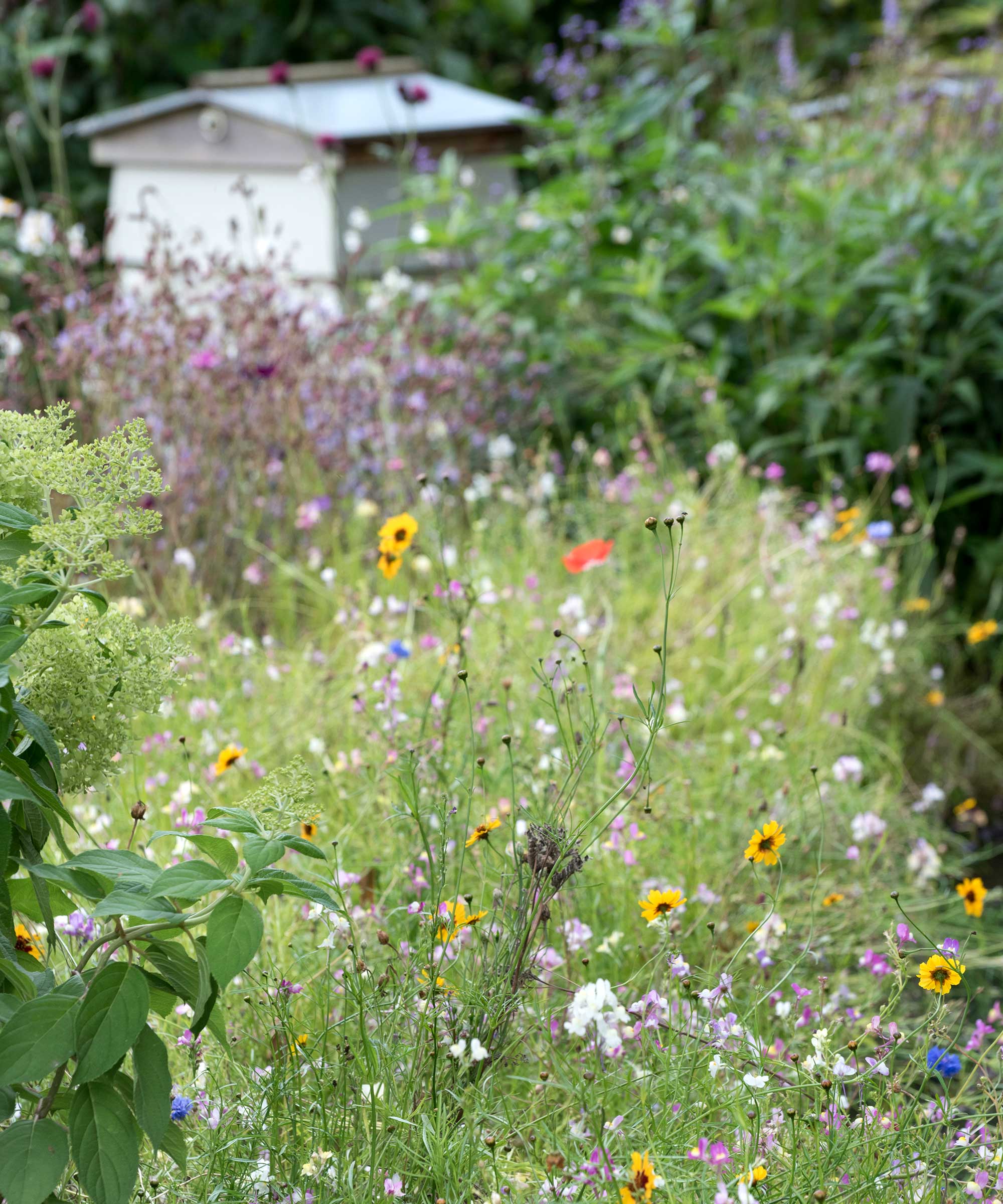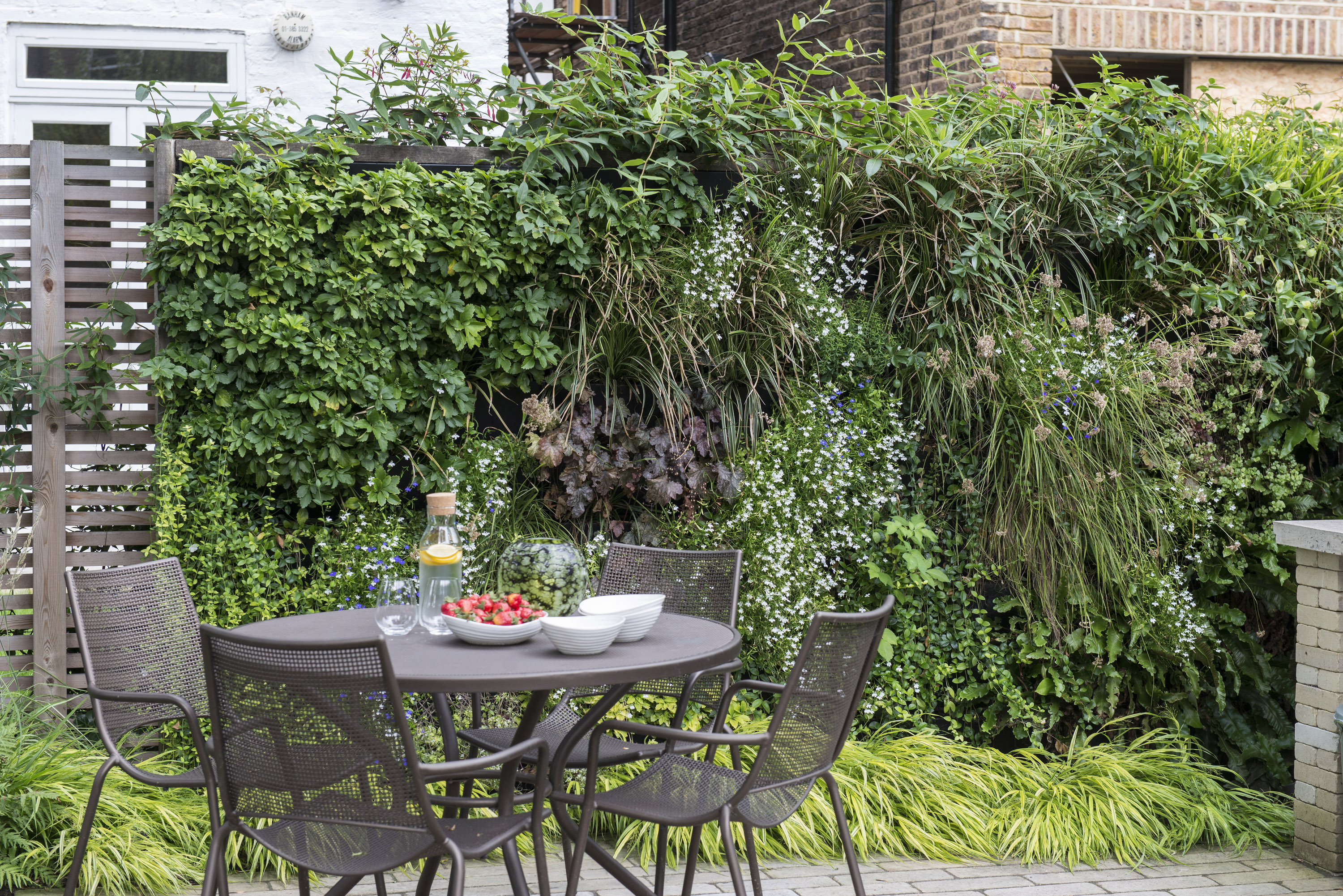Scientists reveal why small urban gardens are essential to the survival of bees
A new study at Bristol University suggests that small urban gardens are crucial for helping bees and other pollinators with the right planting


Scientists have revealed in a new study that small urban gardens are a key reliable food source for bees, butterflies, and other pollinators throughout the year.
If your small urban garden has made you think wildlife garden ideas were lost on you, think again. A study conducted at the University of Bristol found that gardens in cities were able to provide a continuous supply of nectar for pollinators from March to October.
When comparing the nectar produced by different gardens the scientists discovered that some of the smallest gardens actually produced the most nectar.

The study was conducted in collaboration with the Universities of Bristol, Cardiff, and Northumbria, as well as the Royal Horticultural Society (RHS). It measured the amount of nectar produced by flowers in 59 residential gardens in Bristol.
It found that each garden varied in how much food they provided to pollinators and when they provided it. This was in stark contrast to previous studies on farmland that had shown boom and bust cycles of nectar production.
'We knew that gardens were important habitats for UK pollinators, providing 85% of nectar sugar in urban landscapes and a great diversity of flowering plants,' explains PhD student Nick Tew from the School of Biological Sciences.
'However, we did not know how nectar production varied between individual gardens or through the months of the year. It is particularly important to understand garden-to-garden variation to advise how best to collectively manage our gardens for pollinators.'
Why are small gardens so important to pollinators?
The small gardens come into it because the study found extreme variations in the nectar that gardens provided. It could range from 2g to 1.7 kg of nectar sugar throughout the year.
However, it wasn't the size of the gardens that determined how much nectar was produced, but how the garden was managed. That means even the most compact of spaces can be filled with small garden ideas that will help pollinators like bees and butterflies.

'Everyone has the potential to help pollinators in a meaningful way, even with a small garden,' says Nick. 'There is a lot of room for improvement, with some gardens providing hundreds of times less food than others, depending on what people choose to plant, weed, prune or mow.'
'This research highlights the collective power UK gardeners hold in safeguarding the future of our pollinating insects,' adds Dr Stephanie Bird of the RHS.
Plants to include in small gardens for pollinators
To optimize the amount of nectar a small garden produces scientists recommend planting bee friendly plants with open flowers that bloom in late summer and autumn such as asters and dahlias. These late-blooming flowers are important to help supply all pollinators with food all year round.
However, low-maintenance shrubs are also crucial to pollinators in small gardens. Shrubs were found to provide 58% of all nectar in the gardens.
Whether you choose to include a few extra shrubs in a small garden or plant some flowers in pots on a balcony, it all can make a difference.
Rebecca has worked as a homes and interiors journalist for over four years, and is currently the Deputy Editor on Ideal Home online. Previously, she was the News Editor across the Future homes and gardens brands, including Gardeningetc.com. She lives in a rented flat in South London where she makes the most of window boxes to create small container gardens. Inside she has a jungle of houseplants in nearly every room which she does her best to keep up with regular watering and repotting.
